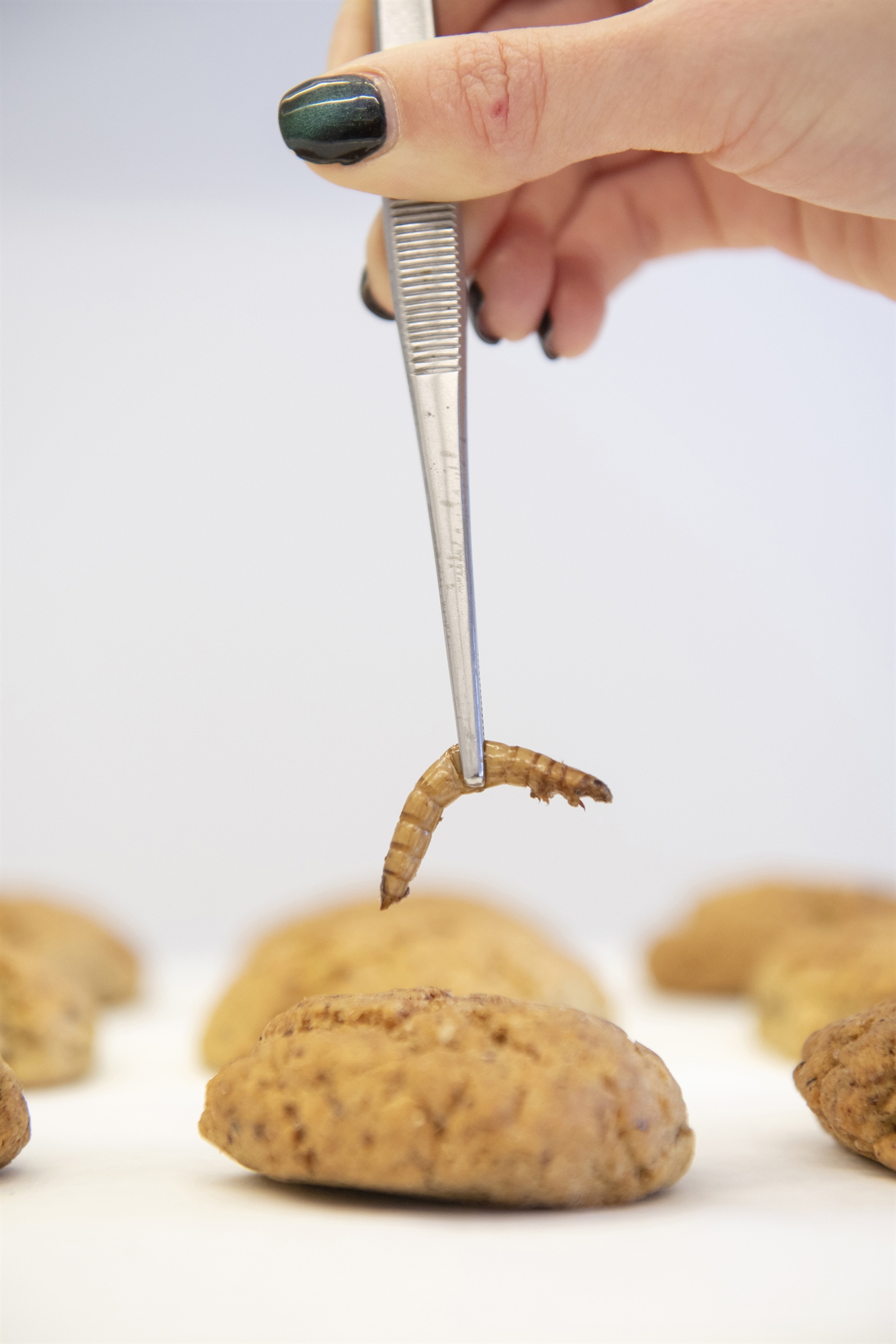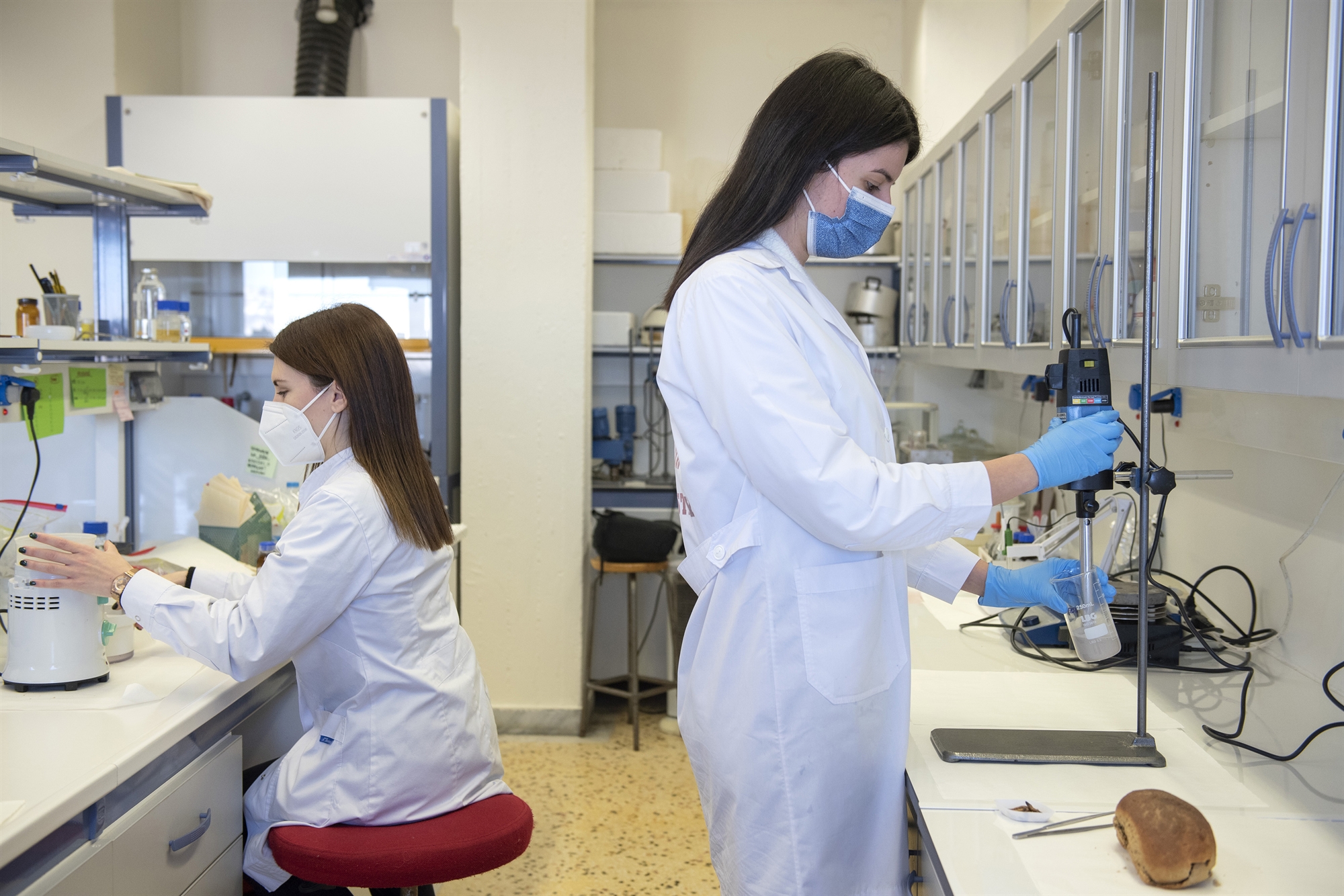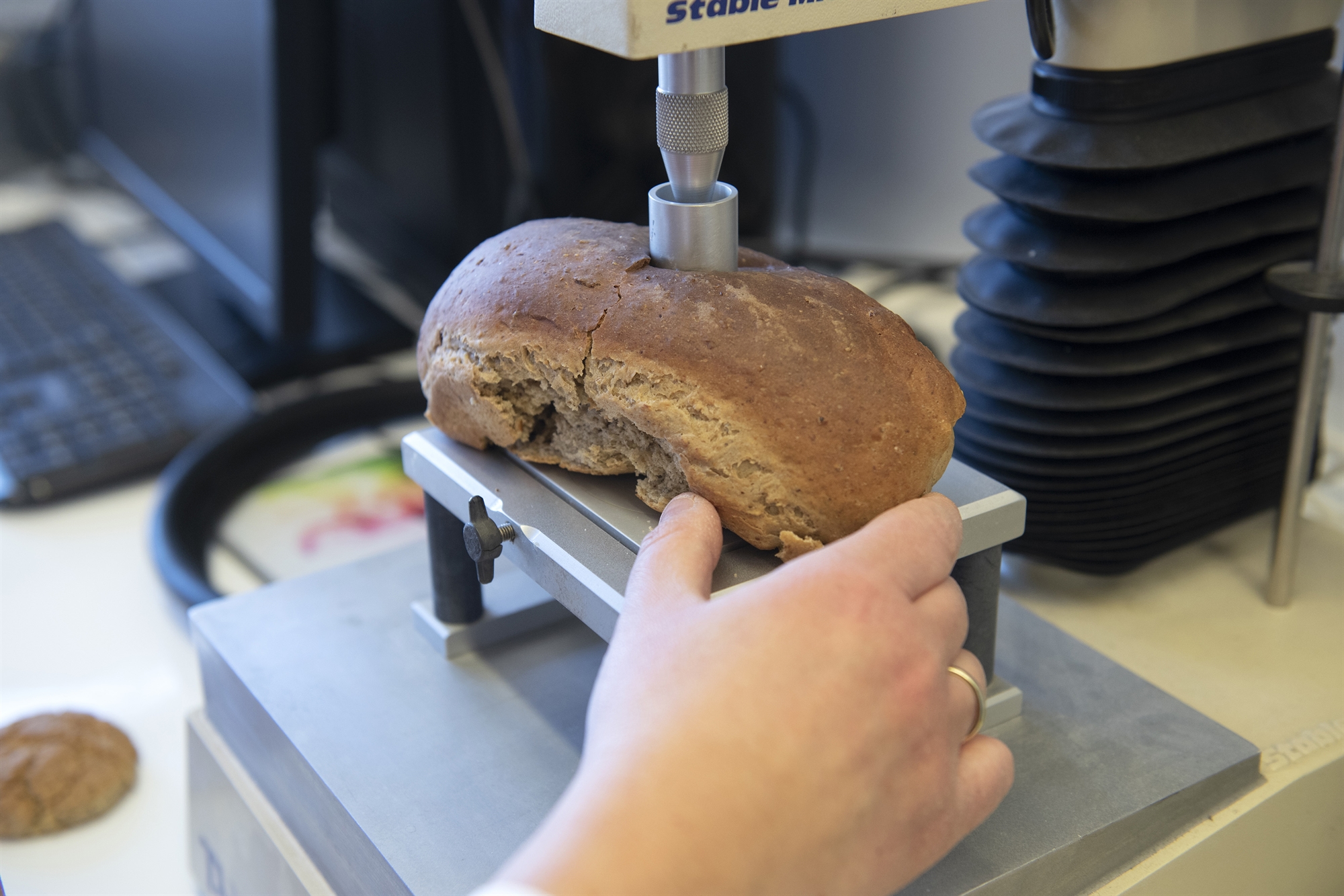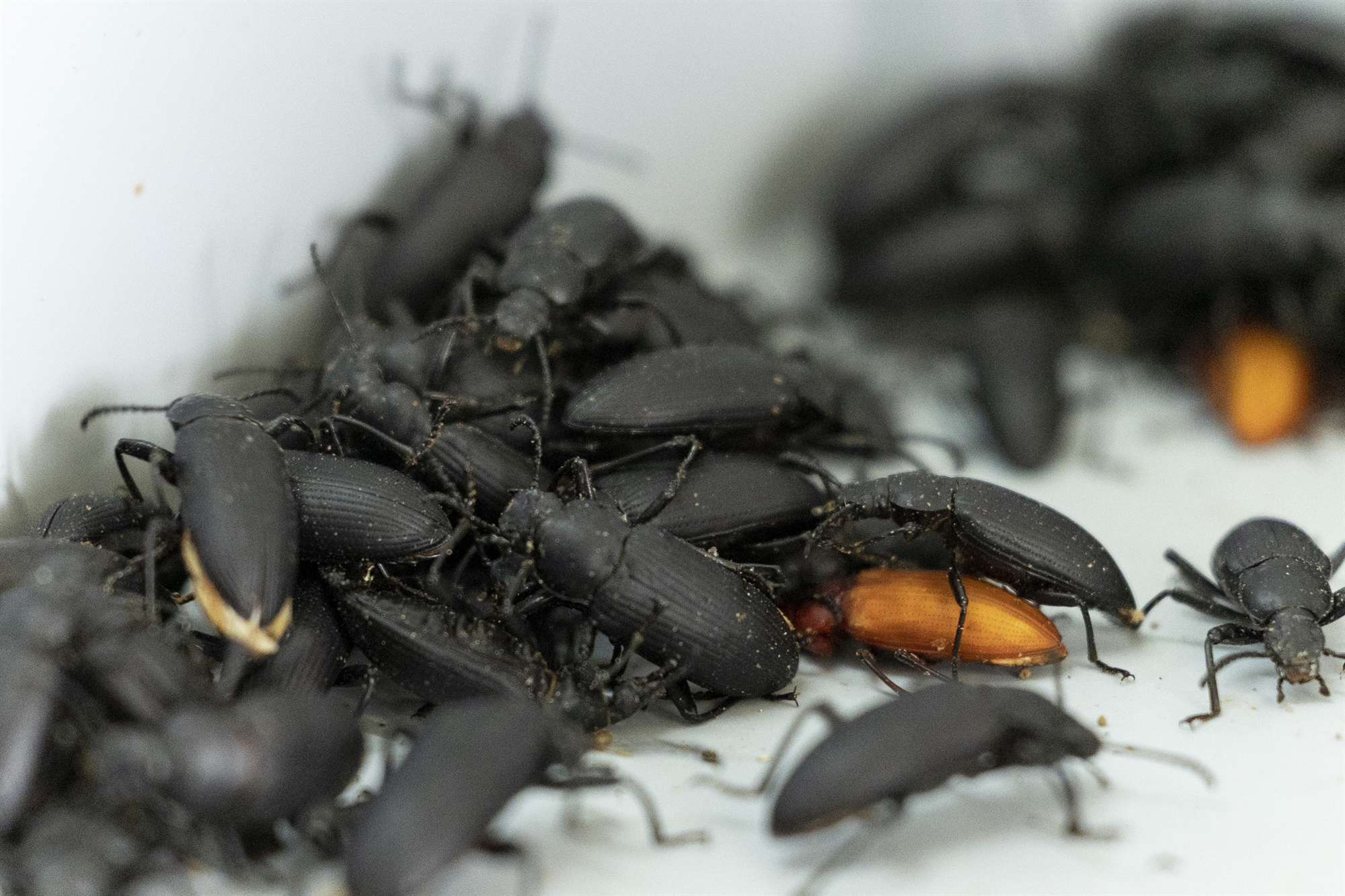
“Give you gloves to catch them?” I rarely turn down an experiential opportunity to report this, but at that moment I hesitated to touch the dozens of worms that moved non-stop, creating the feeling of quicksand in a box in front of me. Instead, Periklis Stavrakaras took them more than comfortably and placed one in the palm of his hand to show me. He did the same with brown cockroaches running up and down the paper egg crates. He would have experienced no less pleasure if he had mixed wheat or grain with his hand. “We are completely familiar,” he admits.
A tall, thin man hides an invisible smile of pride under a thin gray mustache. And one of the reasons is the countless insects he has been raising since 2010. Now he has collected them into three containers, which he has placed in the yard of his house, a single-family house in a village 20 kilometers from Thessaloniki. . There, together with his wife and son, they work as a family in the pioneering profession of insect breeding, which still has no recognition or fame in Greece. However, abroad, and specifically in the Netherlands, where the family has lived for a decade, it has a high growth rate and significant development prospects, mainly as an alternative food source for animal husbandry in order to reduce the consumption of fishmeal and soybeans, which are used to this day in as animal feed. “It’s early in Greece, entire factories have been built in the Netherlands,” says Mr. Stavrakaras.
He learned the secrets from a Dutch friend who produced a huge amount of insects and, as he points out, has now come to teach at a Dutch university. “I bought the know-how from him. I went and he trained me and bought all the tools. You need a lot of them: sieves, test tubes that you isolate, and boxes.
After many sleepless nights, the three of them managed to successfully raise four kinds of insects, two kinds of worms and two kinds of high quality cockroaches. That was not easy. It took one species two and a half years to solve a problem caused by a certain bacterium in the worms. However, by trial and error, they achieved the best possible result.
“At first I was cautious. But because it’s something so innovative and promising, I think we’re in a good phase. Everything will be fine for us,” Anastasia Stavrakara, the wife of the family, says optimistically, describing the many adventures the family had in Greece because the industry is completely unknown: from a carrier who hated insects and started trampling on worms, to the lack of an activity code number for a particular business sector and any assistance in the form of financing.
The company currently supplies live insects to zoos in Athens, Crete, Cyprus and the Netherlands at prices in excess of 10 euros per kilogram (wholesale). “The owner of Attic Park called me and thanked me for the quality of the worms. He told me that for the first time he caught so many birds and so many monkeys. The recipe I have to feed them I paid to get and it comes in eight different kinds. This is where we focus on quality,” emphasizes Mr. Stavrakaras.
1.5 billion euros have been invested worldwide in insect breeding. 30,000 direct jobs created. Source: International Insect Food and Feed Platform.
However, this is only the beginning for the pioneering family business, which has now begun to see its efforts being rewarded and is realizing that the future is predicted to be brighter. The truth is, their timing couldn’t be better.
Already in 2017, the European Union turned its attention to insects as an alternative source of animal feed, very rich in protein, but at the same time very environmentally friendly. Following this logic, the Commission approved the use of entomoprotein in fish feed six years ago, while it was not until August 2021 that it gave the green light to its use as poultry and pig feed. European Union Commissioner for Health and Food Safety Stella Kyriakidou said that day that she welcomed the decision as “another small step towards a sustainable food chain.”

“Now we want to increase production. Until now, we did everything ourselves: we had to make manufacturers, carriers, sales managers. All three of us,” says the son of the family, Fotis Stavrakaras, adding that now, due to the latest developments in the European Union, investors are approaching them to build an insect processing plant.
This mobility has also pushed young people to actively participate in animal husbandry. “In Greece, we are lagging behind, but I see that there is interest,” comments Roxani Gatsu, a molecular biologist and co-founder of the startup Skolix, which started growing insects for animal feed a year and a half ago in Edessa, central Macedonia. “We’re happy to be part of this. It’s considered a premium animal feed product at the moment, it’s more expensive than cheap soy, but it’s going to be needed along the way. With the crisis we’ve been through because of Ukraine, it seemed like “it will happen even faster. If cultivation becomes more intensive and automated – as it began, for example, thanks to France – volumes will increase and prices will fall,” he notes.
Ms. Gatsu was inspired by both her scientific and personal experiences. “We come from a farming family and are faced with a challenge facing the animal feed sector. This is not sustainable. We already use 70% of arable land for animal feed. Insect breeding offers an alternative.”
People react to the idea of an insect, he says, but especially in the case of a chicken, for example, it’s more natural for it to eat insects – which it would naturally do – rather than genetically modified soybeans, which then go up the food chain.
Both companies acknowledge that insects may become part of the human diet in the near future. Some products abroad already contain insects in the form of flour, while the European Food Safety Authority has approved four types of insects as safe to eat after applications from companies that use their protein in preparations. The decision sparked a backlash. “Renewal is required. There is a prejudice, and it is justified. However, if people are told that the cockroach will not come to their plate, and realize the benefits, they will change their minds,” says Fotis Stavrakaras. Until then, the worms of the two companies will be grown in crates in Northern Greece and used as animal feed, while still generating profits and creating jobs.



Organic and High Yielding Protein Culture
The Stavrakar family knows firsthand how environmentally friendly the cultivation they practice is. As they say, for a kilogram of worms, you need two kilograms of dry food, five kilograms of carrots and zero water. And nothing is thrown from the worm. “100% healthy,” they emphasize, characteristically saying that even their excrement is sold for manure in organic farming. Accordingly, to extract the appropriate protein from plants, which are produced by millions of insects of the family that fit in just three containers, several acres of land would be required.
“Insect farming has a very low carbon footprint compared to other crops, while requiring minimal space and minimal water and food consumption,” confirms Adamantini Paraskevopoulou, Associate Professor and Director of the Chemistry and Food Technology Laboratory of the Faculty of Chemistry. ” AUTH, which is a pioneer in this field as it researches the isolation of protein for use in food, and also explores the possibilities of its use as food for Greek fish.
As he notes, one opinion follows another, which suggests that there is promise in this area. “It also attracts the interest of young professionals who are now starting or want to start.” The data of the International Platform for the Use of Insects as Food and Animal Feed are also encouraging, according to which 1.5 billion euros have already been invested in companies from the participating countries of the platform, and by 2030 it is expected to create 30,000 direct jobs.
Source: Kathimerini
Ashley Bailey is a talented author and journalist known for her writing on trending topics. Currently working at 247 news reel, she brings readers fresh perspectives on current issues. With her well-researched and thought-provoking articles, she captures the zeitgeist and stays ahead of the latest trends. Ashley’s writing is a must-read for anyone interested in staying up-to-date with the latest developments.